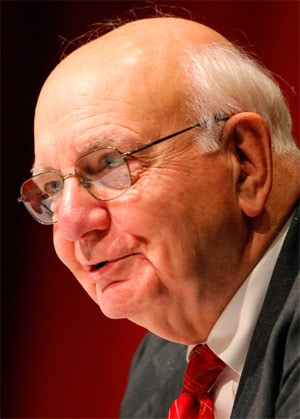NEWSMAKERS: US/GLOBAL
By Gordon Platt
US regulators moved closer last month to adopting the controversial Volcker Rule, which could force big banks to hold on to some trades for two months and to limit their investments in hedge funds, among other restrictions.
 |
|
Paul Volcker still casts a long shadow |
The rule was named for former Federal Reserve chairman Paul Volcker, who headed President Barack Obama’s Economic Recovery Advisory Board before retiring to private life in January.
The 6-foot-7 Volcker still casts a long shadow over the financial industry. In a recent lecture in Washington, he warned global regulators against weakening bank capital rules and other standards put in place following the 2008 financial crisis. “The tendency may be toward a least common denominator, weakening the standards, and to uneven application,” Volcker said. “Resistance to those pressures must be a priority for regulation.”
The Dodd-Frank Act requires US bank and securities regulators to put Volcker Rule regulations into effect. Staffers at the FDIC, the Office of the Comptroller of the Currency, the Fed’s Board of Governors and the Securities and Exchange Commission have drafted nearly 300 pages of new regulations. At press time, the Fed and the FDIC had approved the introduction of the measure and the SEC was preparing to vote.
A key aim of the proposal is to limit big, insured banks from making speculative proprietary investments that could endanger the financial system and require taxpayer bailouts. The draft rule recognizes that there may be difficulty in distinguishing speculative trades from positions that support bona fide market-making activities. CEOs and directors would have to personally assure compliance with the ban on proprietary trading.
The draft rule could greatly expand the reach of US law into foreign jurisdictions. Non-US banks could gain an exception from the prohibition on proprietary trading for trades done solely outside of the US, but no party to the trade could be a resident of the US.
Meanwhile, the Commodity Futures Trading Commission was taking a wait-and-see approach to banning most proprietary trading by banks. It may introduce a virtually identical proposal, or a slightly different version.



